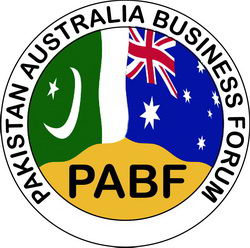TECHNICALWORKING SESSIONS
Two Technical sessions were held at this year’s DAWN Pakistan Food & Agri Expo. The panelists included leading experts, company representatives, academics and practitioners, engaging in dialogue about current trends, pertinent issues faced in the sector, opportunities and suggestions for the future. The details are as follows:
Technical Session I –Agriculture Crisis: Farmer’s Perspective
Discussion about the trends, challenges and opportunities available to the farmers of Pakistan.
Moderator: Aeyesha Gulzar
Panelists:
Dr. Sajid Ali
Institute of Agriculture Sciences-Punjab University
Mr. Sajid Iqbal Sindhu
Green Circle
Mian Nisar
Pakistan Kissan Board
Dr. Zahir Ahmad Zahir
Office of Research, Innovation & Commercialization, UAF
Dr Zahir Ahmad Zahir: During introductory remarks, Dr. Zahir focused on importance of adoption of innovations and technologies for farmers to compete with the regional markets. He mentioned that creating awareness about practices like soil management helps to boost productivity moving towards zero/minimum tillage and keeping soil covered with organic matter like mulch which can significantly increase productivity of the soil. This is also an environment friendly practice, which should be propagated amongst the farmers.
He further mentioned the need for diversification from the traditional 5 crop-cropping pattern. He stated that “one important crop which we have completely ignored is soya bean”. By promoting soya bean cultivation as part of a diversification pattern, we will not only be adding essential organic elements to the soil, but also contributing towards import substitution. This type of crop diversification has to be linked to a market; here the Government should play an important role to develop marketing systems. He further remarked that we are fortunate that nobody goes to sleep hungry in our country; It is easier to control an angry man, but next to impossible to control a hungry man. So we need to build up on this and capitalize on the opportunity presented by our agriculture sector.
Mr. Sajid Iqbal Sindhu: Mr. Sindhu was of the view that our farmers are ready to invest to produce high value crops, but they need handholding from public sector in terms of suitable rates of their commodities. He added that training the farmers is an extremely important element necessary for the growth of the agri sector. This is a gaping hole, which can be plugged by the agri extension department, and the various private companies working together, while collectively providing employment to the scores of agri graduates coming out of the agri universities. He stated that we have a huge asset in the form of our agri universities. For example, we have 28,000 students passing out from the UAF every year, but yet, we do not have sufficient manpower to work in the field, or sufficient resource pool to conduct cutting-edge, market relevant research, which is practically applicable for the common farmer. This is because the younger generation is shying away from farming/agriculture as a profession due to the image of poverty surrounding the farmer. He was of the view that the educated people like the panelists would have to try to change this perception. He said “Each of us must be conscientious enough to be ready to contribute our portion towards spreading the knowledge we have access to”.
Dr. Sajid Ali: Dr. Ali spoke about climate change, becoming a looming reality we have to face, yet we cannot blame every woe in the agriculture sector on this phenomenon. We should now focus our research to become farmer-oriented, to be able to apply it practically. We need to impart the importance of practical applicability of research to the student we are training, rather than seek to earn a degree for the sake of obtaining a degree. He urged academics and students alike to spend more time in the field, learning the realities of the sector and getting ‘their hands dirty’, rather than just sitting in classrooms and learning theory.
Mian Nisar: Mr. Nisar commented that it is heartening to see so many students among the audience, as they need to become familiar with the practical challenges of the sector. He went on to say that it is unfortunate that the government has always treated the industry department as the favored “darling” of the leaders, and the agri sector has always taken the back seat, in spite of being the back bone for industry as well. He would like to use this forum of the Dawn expo to get traction about the plight of the farmers to the policy makers. He gave the example of the current on-going procurement of wheat by the government. He said the government is well aware of the recent catastrophic weather conditions, which has adversely affected the crop. He wants to call out to the different farmer bodies to come together for this issue and urge collective action from the government. He went on to say that all stakeholders should sit together and pool their efforts to solve various issues they are facing. The proportion of small farmers is increasing every year so there is need to make marketing clusters of the farmers so that they can access innovations and get better prices of their produce.
Technical Session 2–Agri-Business: Marketing Opportunities
Moderator: Aeyesha Gulzar
Panelists:
Mr. Badar Khushnood
Bramerz – Digital & Social Media Agency
Dr. Talat Naseer Pasha
VC, University of Veterinary &Animal Sciences (UVAS)
Mr. Fahad Iqbal
Director, Ravi Agric
Mr. Imran Sheikh
General Manager, Galaxy Rice Mills
Ms. Iqra Asghar
Manager Sustainability, WWF-Pakistan
Mr. Badar Khushnood: Mr. Khushnood highlighted that Punjab is experiencing a youth bulge, where millions of rural youth are seeking gainful employment opportunities. The educated youth can not only create opportunities for themselves but create opportunities for the less educated rural youth as well by exploring and entering the agribusiness sector as entrepreneurs. He went on to say that the digital platform provides many opportunities for the youth to engage in all kinds of businesses, and the agri sector holds tremendous potential for start-ups as well as providing opportunities for women to enter the agribusiness space. He urged the youth that “rather than waiting for gainful employment, create your own employment and opportunities”.
Dr. Talat Naseer Pasha: Dr. Pasha started by narrating the history of UVAS, particularly the university’s contribution in development of the dairy sector. He also mentioned how the university has helped create awareness about the benefits of milk and thereby help build the market about the consumption of good quality pasteurized milk. He also mentioned that there is a pasteurization plant on the university campus and the UVAS farm provides milk, which is processed at this plant. This offers actual practical opportunities for students wanting to build their careers around various aspects of the dairy industry. The VC went on to explain how the university, in keeping abreast of latest educational trends, also has an incubation center on campus, to provide opportunities to aspiring entrepreneur-students by offering them a platform to explore and define their agri-business ideas. He shared the success story of a group of students who decided to develop a business around value addition to the milk being pasteurized at the UVAS campus plant by creating various flavored yogurts, as well as frozen yogurts and offering this healthy dessert alternatives at the university canteen. He went on to expound how creating a whole ecosystem within the university environment, particularly a technical university, helps nurture talent for the industry and provides valuable apprenticeship opportunities to the students, readying them for a productive life after their studies.
Mr. Fahad Iqbal: Mr. Iqbal introduced his company Ravi Agric, as representing various international agri-tech companies like Klass, Fimaks, Baldan, etc. and their suppliers for agri-mechanization equipment, distribution and advisory services across Pakistan. He went on to say that even though mechanization is the need of the hour, they face constant challenges when trying to look for well-trained personnel to work with their high-tech machinery and equipment. He emphasized that alongside a university education, we also need to focus on the alternative to formal education, in the form of vocational training. He said, “we need to strengthen our vocational training system and the government needs to make such trainings and their certifications mandatory for agriculture sector.” He explained that by strengthening this alternative stream, we will provide opportunities, particularly to our youth, who will not be competing for the limited formal employment opportunities. He was of the opinion that through such alternative educational system, we will develop a pool of extremely necessary and relevant service providers from our, who can be self-employed and productively engaged in the agriculture sector. He concluded that agriculture related services are a huge market opportunity for our talented youth, which can lead to economic dividend for the country.
Mr. Imran Sheikh: Mr. Sheikh supported with Helvetas Swiss Intercooperation and West Mills UK. Mr Sheikh, speaking from his experience of leading the contract farming program of Pakistan’s largest rice mill, stated that there is huge market potential for engaging the youth in the agriculture sector, particularly through programs like contract farming, which offer opportunities like developing service providers and social impact businesses. But, echoing Mr. Fahad Iqbal’s view point, he stated that the biggest challenge is finding trained manpower, whether it is for service provision or farming practice. He also endorsed the point that vocational training sector needs to be strengthened to harness the potential of our youth and provide them with gainful productive growth. Mr. Sheikh said, “our biggest capital is our youth, they are also our biggest market”, and wanted to expound his point from the Dawn Media Group’s platform to appeal to the policy makers to develop inclusive and supportive policies for youth inclusion and engagement in the agri-sector.
Ms. Iqra Asghar: Ms. Asghar started by talking about her experience as an intern, which helped shape the career path she chose. She spoke about how important her internship experience was in providing her professional soft skills, which are generally the weakest point in any technical education. She insisted that the people skills, communication skills, negotiation skills, team skills she learnt through her internship, helped give her an edge over her peers, particularly when it came to proving her mettle at job interviews. She encouraged all the young members present in the audience, as well as the audience in general, to take the initiative to network and engage with different companies where their interests lie, to proactively learn more about how they can contribute and build their careers around subjects of interest. She expounded the benefits of networking, and gathering market intelligence to help capitalize on the available opportunities, whether for formal employment, self-employment or business development.
At the conclusion of the session the audience were keen to know whether there were any internship opportunities readily available to the students/new graduates attending the Dawn Expo and conference and how and where they could access resources to avail the opportunities mentioned by the panel members. All the panel members unanimously shared their website addresses and invited the participants to register their interests through the websites, while quoting The DAWN Pakistan Food & Agri Expo’s technical session as reference point, and the available opportunities for internship, apprenticeship and entrepreneurial or training opportunities will be shared with them.
The sessions concluded with a memento distribution by Mr. Kashif Saeed, Director Operations The DAWN Media Group to the panelists.






